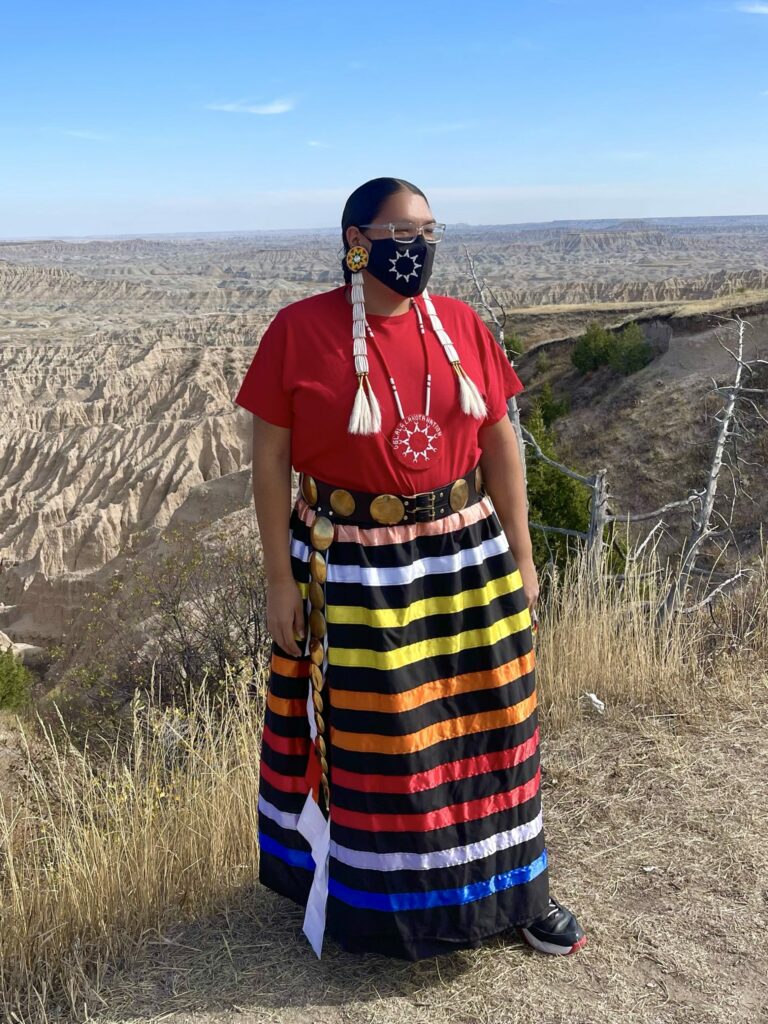This Youth Camp Is Proving Two-Spirit People Have a Place in Lakota Tradition
Anthony Khangi Thanka knows far too many dead people, especially for someone who just turned 21.
As a member of the Sicangu Lakota, Oglala Lakota, and Northern Cheyenne Nations, Thanka tells Them that growing up as a Two-Spirit person on the Pine Ridge Reservation came with a set of challenges.
Prior to colonization, Two-Spirit people — a term used to describe genders outside of the Western binary across Turtle Island and beyond — were cherished within their communities and held sacred ceremonial, spiritual, and healer roles. But centuries of forced assimilation and violence by the federal government erased much of this history, leaving Two-Spirit people vulnerable within their own communities.
The crisis is particularly dire on the Pine Ridge Reservation, which consistently ranks as one of the poorest counties in the United States. Facing heightened rates of familial rejection, houselessness, substance abuse, and suicide, Two-Spirit youth are often left to fend for themselves. Thanka says they can’t count the amount of people they have lost on one hand.
“It’s so shocking how that’s just so normalized in our communities,” Thanka tells me over Zoom.
For Thanka, diving into their culture through regalia making and powwow dancing saved their life. “Being Two-Spirit, I came into my activism when I stepped into my culture,” Thanka says. “I really took my culture on when I needed it.” Their goal, they say, is to make sure every Two-Spirit youth makes it through and thrives in their culture.
This excerpt is from “At These Powwows, Two-Spirit People Are Always Revered” a story by them highlighting systemic violence and barriers that Indigenous trans, Two-Spirit, and gender-variant Pasifika people face — and the movements to overcome them.
“The whole movement of land back for me, it’s like two-spirits back, you know? And there’s people who talk about the different things that they want back with the land, and whenever they took the children and stole them and put them into boarding schools, it was the boarding school era that completely beat, literally physically beat, transphobia and homophobia into our elders, into our ancestors who came before us.” — Candi Brings Plenty, Oglala Lakota

